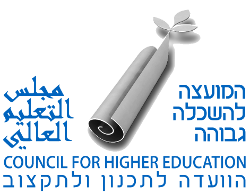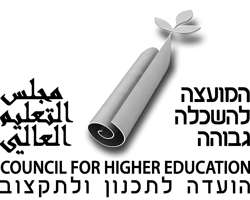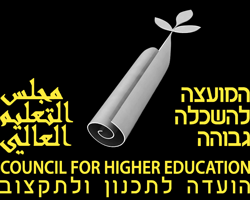For the First Time: Institutions of Higher Education Will Be Budgeted Based on Output for Promotion of Gender Equality
In short: An institution of higher learning that increases the percentage of women in its senior academic faculty and representation of women in committees and among senior officers will be incentivized based on meeting targets. The institutions that best meet the targets will be awarded an annual budget of NIS 750,000.
Prof. Yaffa Zilbershats, Chair of the Planning and Budgeting Committee: “The Establishment of the ‘equator’ index for gender equality in the academic system is a revolutionary step that will lead to the improvement of the promotion of women’s status in academia.”
The Planning and Budgeting Committee (PBC) of the Council for Higher Education (CHE) adopted the recommendations of the Steering and Judgment Committee for the Promotion of Gender Equality of the PBC/CHE, which is headed by Prof. Yonina Eldar and whose members also include, inter alia, Prof. Yaffa Zilbershats, Prof. Na’ama Sheffi, Prof. Ruth Halperin-Kaddari, and Prof. Michal Bar-Asher Siegal. According to the recommendations, institutions of higher education will be asked to demonstrate strategic plans for the advancement of gender equality during the 2020 - 2025 academic years with an emphasis on improving the factors relevant to promoting gender equality in institutions of higher education.
The index distinguishes among three types of institutions: Universities, general academic colleges, and academic colleges for education. It is built on two matrices : Quantitative and qualitative. In the framework of the quantitative portion, institutions will be asked to demonstrate improvement in factors such as: The percentage of women included among the senior academic faculty; the percentage of women hired as senior lecturers as compared to the percentage who are hired as junior lecturers and as opposed to the percentage of men who are hired for equivalent positions, nomination of women for prestigious honors and scholarships, etc.
Under the qualitative portion, these institutions will be asked to demonstrate improvement in the following areas: Representation of women in institutional committees and among its officers, wage supplements for officers, leadership seminars for implementation of gendered thinking, employment equality and fairness, designing a gender supportive institutional environment, and similar actions.
This plan encourages independent intra-institutional review and the establishment of defined institutional targets to improve the current conditions in academia. The plan’s objective is to achieve gender equality and parity in Israel’s system of higher education.
The institutions that participate in the program will be budgeted based on the extent of their ability to meet the annual targets that they predetermine and that the Steering and Judgment Committee will approve. Each year, each institution will be ranked according to its overall progress with the four leading institutions - two universities and two colleges (general academic colleges and academic colleges for education) – being awarded a special annual budget supplement of NIS 750,000 and NIS 500,000, respectively. Alongside these institutions, the other institutions that improve their criteria will be entitled to budgets of NIS 200,000 and NIS 150,000, respectively.
Prof. Yaffa Zilbershats, Chair of the Planning and Budgeting Committee: “The establishment of the ‘equator’ index for gender equality in the academic system is a revolutionary move that will lead improvements in the advancement of women’s status in academia. This improvement is necessary both in order to increase the number of women who are members of senior academic faculty in institutions of higher education as well as in order to bolster their participation in various academic committees and key, leadership positions in the academic system. This index, which the experts of the Steering Committee for Gender Equality formulated and which the CHE approved, will lead to such needed improvement.”
Prof. Yonina Eldar (the Weizmann Institute), Head of the CHE Committee for Gender Equality: “The equator index is a revolutionary program that was created to make a significant and measurable change in institutions of higher education in the promotion and encouragement of gender equality on all levels. The goal is to incentivize the institutions to build significant, strategic programs, customized to each institution, to promote women and encourage them to take a meaningful part in research and management. The committee’s work brought about, for the first time, a quantitative index that will encourage institutions to strive to achieve a proper, equal opportunity academic environment, increase the number of women in senior academic faculty and included among officers, encourage excellence, and foment an atmosphere that supports gender equality. We are very excited to see the program get underway!”
The index was formulated within the framework of the multi-year plan for the promotion of gender equality for the 2017 – 2022 academic years, whose primary objectives are raising the awareness of gender equality in institutions of higher education and recruitment and promotion of women to and in senior academic faculty, in general, and, especially, in fields with particularly low women’s participation, such as the exact sciences and the various engineering fields. In the framework of this program, the PBC grants scholarships to research master’s degree students and doctoral students in the high-tech industries as well scholarships to outstanding postdoctoral students. Similarly, the PBC allocates a competitive budget to support broad projects for the promotion of gender equality in academia, a dedicated budget for the activity of the gender equality president’s advisors in institutions of higher education, as well as works toward the continued raising of awareness of gender equality in the higher education system.



